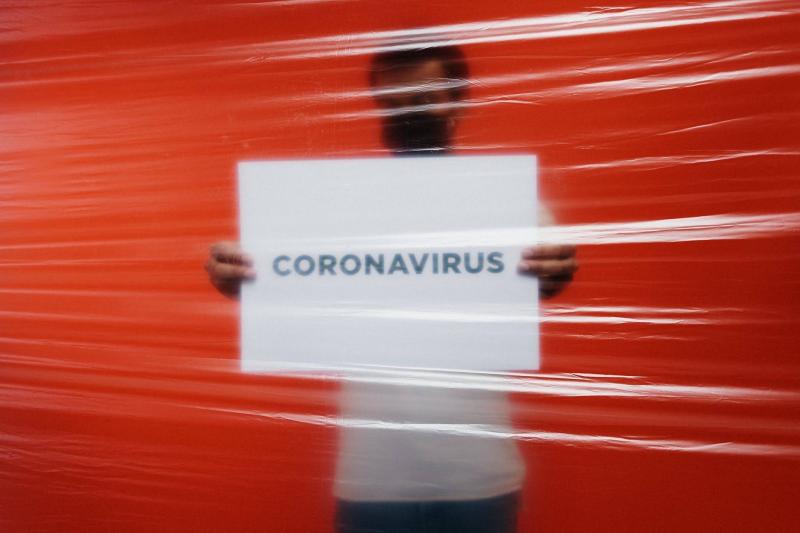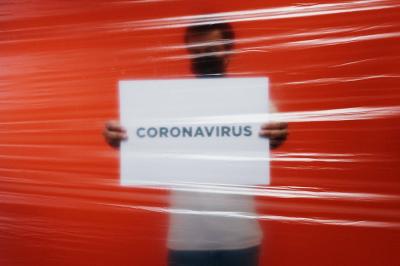Under the title "Anticipation of Results.. and Difficult Questions About the Threat of the Omicron Variant," Alhurra reported that public health experts have long feared the emergence of a new and dangerous variant of the coronavirus that would be more lethal, more transmissible, and better able to adapt to vaccines. Indeed, the emergence of the Omicron variant was anticipated, as scientists first discovered it in Botswana and South Africa. It is characterized by significant mutations in the spike protein of the virus, and the large number of mutations raised sufficient concern.
Over the weekend, the World Health Organization officially deemed Omicron a "variant of concern." This classification means that the WHO believes there is good reason to think that the Omicron variant may be more transmissible than the currently dominant Delta variant, may cause more severe disease, or may be better able to evade public health measures, including vaccines – or all of the above. It may take at least two weeks before we begin to receive definitive and clear answers to the significant outstanding questions regarding the Omicron variant.
According to VOX, there are important questions that need to be answered to clarify the situation and understand the expected impacts of the new variant:
**How does it transmit?**
Covid-19 has evolved to become more contagious over time. The Alpha variant, first identified in the UK before last year's holiday season, was more easily transmitted from person to person. The Delta variant, discovered last spring, was even more infectious than Alpha. If Omicron proves to be more transmissible than Delta, it could reach people who have no immunity against Covid-19, which includes tens of millions in the United States and billions worldwide, potentially becoming the dominant strain of the virus, just as Delta dominated previous variants of the coronavirus. If Omicron proves better at evading acquired immunity (either from vaccination or prior infection) than Delta, that would mean more potential infections. South Africa has witnessed a sharp rise in daily Covid cases over the past two weeks – from an average of 246 new cases by November 14 to 1,851 cases by November 28. This rise has fueled much concern that Omicron is more transmissible.
**Does the variant cause more severe disease?**
More infections lead to an increase in severe cases, which also means more hospitalizations. However, if Omicron causes more severe illness than previous variants, it would mean that the proportion of severe cases would be higher than current rates. There have already been some early speculations that Omicron might cause milder symptoms, not more severe ones, but the WHO has warned that reported Omicron infections so far tend to be among younger individuals, who are generally more likely to resist severe Covid-19 infections.
**How well does Omicron evade Covid-19 vaccines?**
Vaccines have thus far been the most effective weapons against Covid-19 globally. If Omicron proves adept at evading the immune responses that vaccines are supposed to generate, it would create another significant problem. The vaccines were designed to target earlier strains of Covid, and Omicron may have mutated to the extent that it is difficult for vaccines to recognize the virus and prompt the immune system to respond. Pfizer's CEO, Albert Bourla, predicted on Monday that the Omicron variant would reduce the efficacy of the vaccine but would not render vaccines useless. Bourla reiterated to CNBC that his company could develop a vaccine that combats Omicron in just 100 days. Another possibility is that vaccines may be less effective at preventing infection due to Omicron's mutations, yet still provide strong protection against severe illness, as was the case with the Delta variant.
**What is the effectiveness of Pfizer’s treatment against Omicron?**
One of the reasons for optimism regarding the course of the pandemic, just a week ago, was the promise of treatments that could significantly reduce the chances of hospitalization or death among those infected with the coronavirus. The "good" news so far is that Pfizer appears confident that its treatment "Paxlovid" can combat the Omicron variant, according to comments from its CEO. In trials, the antiviral treatment prevented about 89% of those infected from severe disease and death. Both Pfizer and Merck are seeking FDA approval for antiviral pills that can prevent severe illness. Some experts seem optimistic that antiviral treatments will remain effective because they target parts of the virus that have not mutated.




